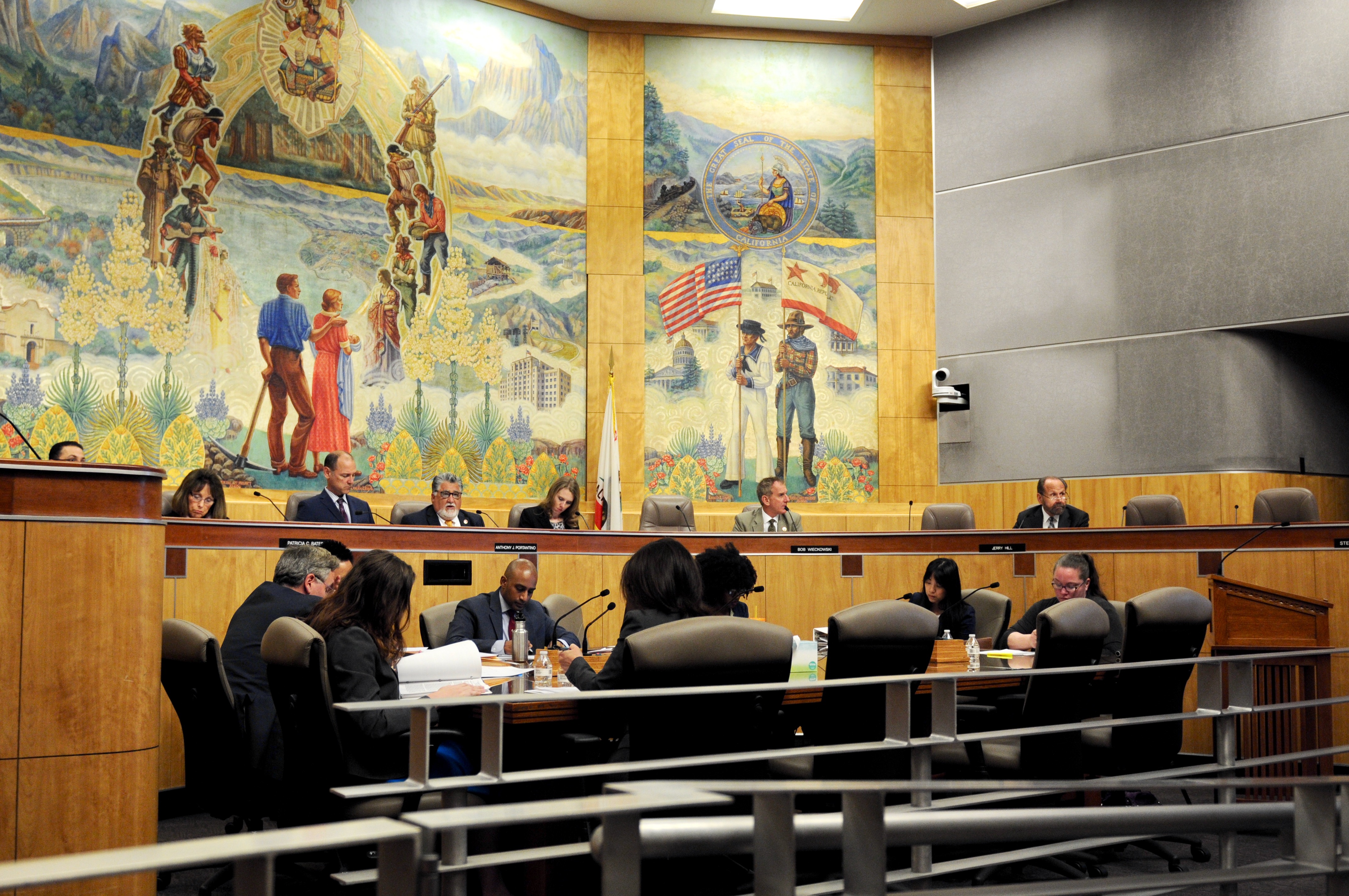
California State Capitol. (Photo: Kevin Sanders for California Globe)
The General Rules of Lobbying
Lobbyists should be credible spokespersons for their clients and their interests to decision-makers
By Chris Micheli, December 29, 2019 6:33 am
By Ray LeBov and Chris Micheli
Many, if not most, lobbyists can articulate their own “rules of lobbying.” We are no different. Based upon our years of experience lobbying the legislative and executive branches of California state government, we have compiled the following “general rules of lobbying.” Some are simple rules, such as:
- Be trustworthy
- Never threaten or make personal attacks
- Be kind to everyone involved in the process
- Prepare for your lobbying work
- Be proactive
- Develop good people skills
- Address opposition arguments
- Be respectful
- Develop relationships
- Be a valuable resource
- Be patient
- Have good timing
- Know your subject matter
- Tell the truth and keep your word
These qualities usually contribute significantly toward making a successful lobbying career. What other qualities help make an effective lobbyist? Becoming an effective lobbyist requires an understanding of the legislative or regulatory process, as well as an understanding of the policy and political aspects of legislation they are working on, and knowledge of the players in the process.
A successful lobbyist possesses the experience and knowledge to combine all of these qualities. Lobbyists should be credible spokespersons for their clients and their interests to decision-makers. In order to do this, lobbyists must be able to analyze issues and solve problems, to strategize and to implement tactics to manage a proposal from an idea into a law, to have the ability to effectively communicate orally and in writing, and to do so in an ethical manner.
Perseverance is critical to a lobbyist’s success because there are often many twists and turns and obstacles that one faces in both the legislative and regulatory processes, if not seemingly imminent outright final defeats, on the way to ultimate victory. But do not make the mistake of thinking, as many do, that persistence is the sole component of perseverance. Patience is an equally important part of perseverance.
As important as possessing the knowledge, skills and qualities to be successful, lobbyists should strive to avoid making some of these common mistakes:
- Failure to do your homework, including reading the text of the bill and understanding the issue being addressed, alternative solutions, and points that are raised by the opposition.
- Not managing client expectations or setting unrealistic expectations that cannot be met.
- Ignoring staff, whether majority or minority party, as they play such a critical role in the process.
- Not tempering persistence with patience, as both of them are required in equal quantities.
- Not telling the truth, or telling a half truth. Your reputation for honesty is critical to your success. Staff and elected officials quickly learn those lobbyists who deal in fact, rather than hyperbole.
- If you put something in print (to share with even one other person), assume it will be read by everyone.
- Not living by the adage of “not letting the perfect be the enemy of the good.” Don’t lose a potential victory by pursuing an unattainable goal for too long.
- Sending the wrong messenger to communicate the client’s point of view.
- Forgetting that enacting a statute may not be the end of the war. A legislative win or loss may just be the battle. In the case of a non-self-executing statute, a regulatory agency plays a huge implementation role. The lobbyist’s job is not always over then the bill is enacted.
Finally, as many writers have observed, in order to be successful, a lobbyist must possess the qualities of determination, honesty, integrity, and hard work.

Over the past ten years, 43-year Capitol veteran Ray LeBov and his Capitol Seminars have set more than 2,000 participants on the road to lobbying success.
Chris Micheli is a Principal with the Sacramento governmental relations firm of Aprea & Micheli, Inc. and guest lectures for Capitol Seminars.
- Miscellaneous Civil Action Proceedings - February 23, 2026
- Probate Code Could Be a Basis for Statutory Interpretation Principles - February 22, 2026
- Conservation Banks - February 22, 2026




